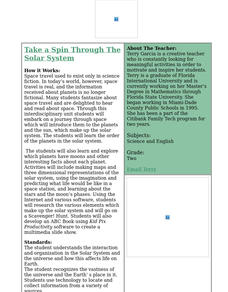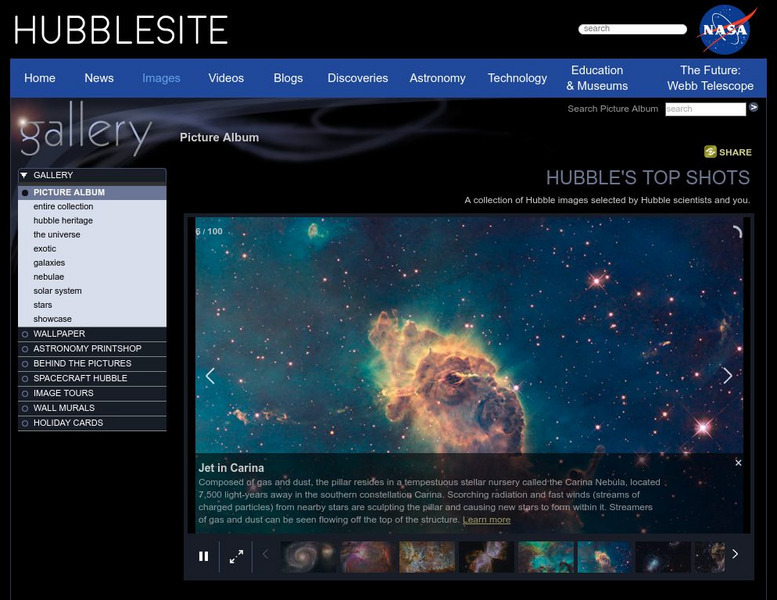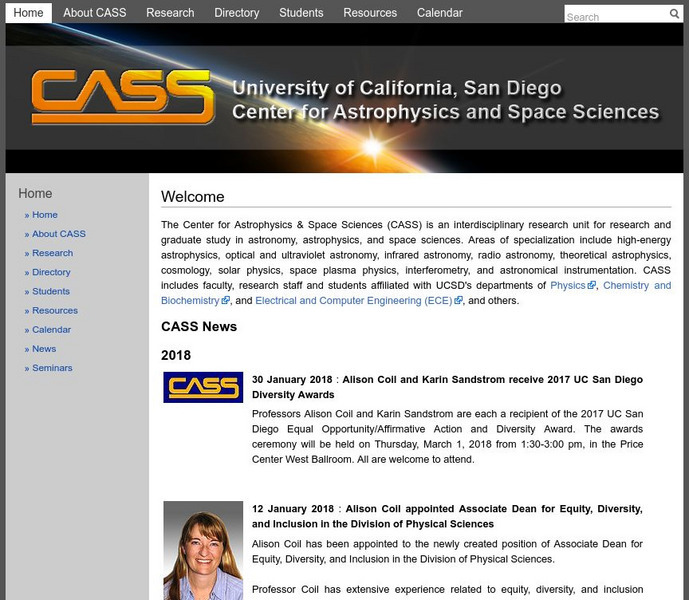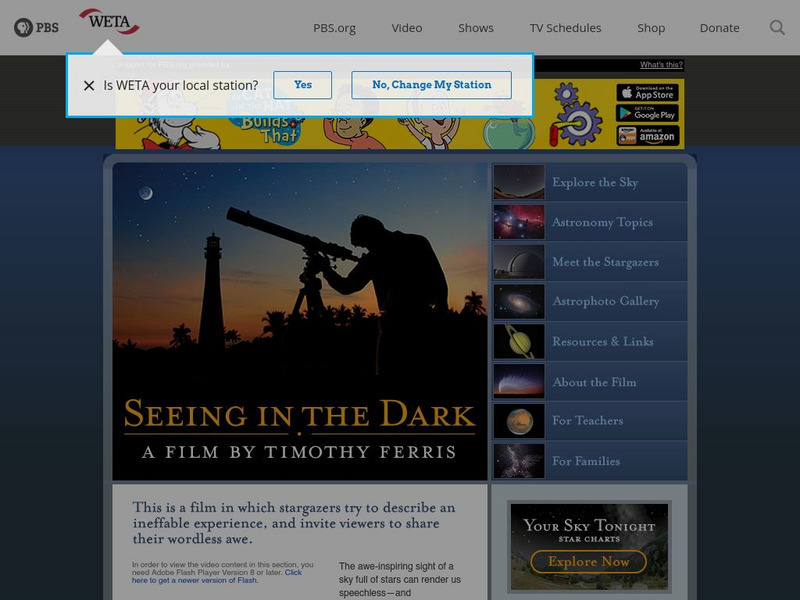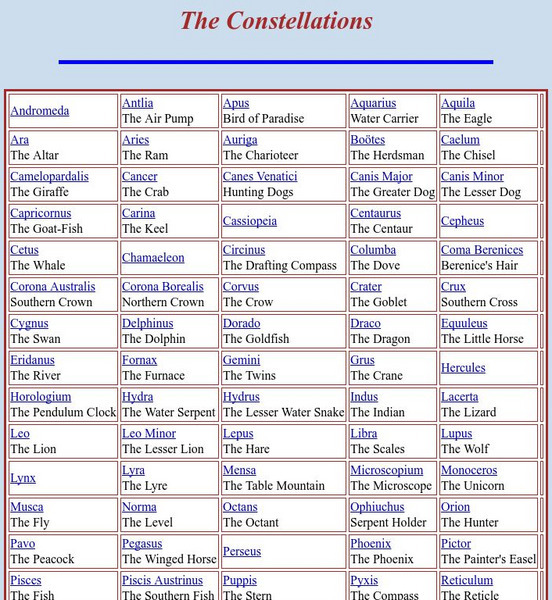Curated OER
Myths and Legends
Eighth graders write a myth about a constellation that is seen from the night sky in South Carolina. They draw a picture of their constellation to attach to their myth. They scan their pictures and type their stories into a web page...
Curated OER
It's Still Polaris
Students observe the changing night sky over the course of an evening and chart the circumpolar stars as they traverse the sky in a progression around Polaris. They infer and discuss the cause of the changing star positions.
Curated OER
StarDarts
Pupils divide into groups of four or five and distribute materials to design StarDarts by drawing and cutting out 6-8 cardstock stars, each about one and a half inches across. They decorate their stars with phosphorescent paint...
Curated OER
Pineapple Stars
Students watch a demonstration on how to create pineapple stars. As a class, they review the different types of fabrics and the best ones to use for this activity. They share their creation with the class and ask for constructive...
Curated OER
How to be a Great Navigator!
Learners, through teacher lecture and class discussion, explore historical methods of navigation: dead reckoning and celestial navigation.
Curated OER
Luisa's Steller Evolution Lab
Pupils examine stars and constellations in the night sky. They complete a KWL chart and calculate the mass of stars. They also discuss how a star is formed.
Curated OER
Mars: Off the Charts--Until You Put It There
Students explore the night sky and make illustrations which are shared in class the next day. Distinctions are made between the stars and the planets and views of the constellations for the season are made available. The work of early...
Curated OER
How Long Would It Take To Travel To the Stars?
Students consider the amount of time that it would take to get to the star, Sirius using various modes of transportation, some practical and some whimsical. The practicality of physically going to another star system is explored in this...
Curated OER
Palm use in Astronomy
Learners identify and recall common constellations by using a palm pilot with astronomy software. Students will use their Palm to assist them in correctly identifying constellations using a telescope.
Curated OER
Observing Mars in the Night Sky
High schoolers compare and contrast the orbits of Earth and Mars, locate the planet Mars, and diagram its retrograde motion.
Curated OER
SIMPLY STARS
Learners produce quilting stars that challenge students with unusual piecing situations, and the sampler format allows quilters to create freely with unusual fabric combinations.
Curated OER
Take a Spin Through the Solar System
Second graders participate in a variety of activities to explore the Solar System in this unit.
Curated OER
Astronomy: A Star Party
Students explain the functions of a telescope. They name the parts of the telescope. After previously learning the planets and constellations, students identify and view them during a star party.
Curated OER
The Mystery Constellation
Learners decipher two teacher chosen mystery constellations a month. They listen to stories, explain what they know about constellations and name the mystery constellation.
Curated OER
Bouncing Sunlight
Third graders use flashlights and balls to demonstrate how the light bounces off of the sun and reflects onto the moon. They record their observations in a journal.
California Institute of Technology
Cool Cosmos: Ask an Astronomer
What is a star? How many stars can you see at night? How far away are the stars? Find the answer to these questions and more as Cool Cosmos and NASA astronomers answer the most frequently asked questions about stars!
University of Wisconsin
University of Wisconsin: The Constellations and Their Stars
An excellent site dedicated to the constellations and information about the objects which make them up. Contains a great deal of information about various stars, galaxies and other objects, as well as details on how best to observe them.
Science Buddies
Science Buddies: Changing Constellations
Do you like to look up into the night sky? There are so many stars, it can be mind boggling. Some ancient people marked time by the changes in star patterns. We still use changes in constellation patterns to mark astronomical time. This...
Science Buddies
Science Buddies: Which Stars Can You Use for Navigation
A great science project from Science Buddies that examines how ancient peoples navigated without the benefit of a GPS. Find out which stars are important in navigation in the northern and southern hemispheres. The Science Buddies project...
Space Telescope Science Institute
Hubble Site: Images From Space
This site provides vivid images taken in space by the Hubble Telescope. You can view the entire collection or choose an area you enjoy the most. Explore galaxies, the solar system, nebulae and more!
University of California
University of California:center for Astrophysics & Space
Supernovae, neutron stars, and pulsars are topics on this page. Extensive section on pulsars that presents information on their discovery, characteristics, evolution, and location.
PBS
Pbs: Seeing in the Dark
While you won't find the full movie here, there are extensive learning opportunities available to discover the many stars in the sky. Students and teachers will find all sorts of activities, facts, and lessons.
Other
Constellations Web Page: The Constellations
Information about 88 constellations, including the myths associated with them and details of the major astronomical objects that are part of them.
Other
Jodrell Bank Centre for Astrophysics: A Tutorial on Radio Pulsars
A extensive site that describes the history of the discovery of pulsars along with definitions, characteristics, locations, and distances of pulsars, plus much more.













